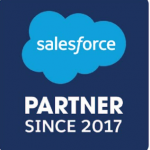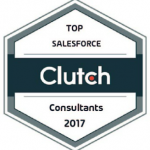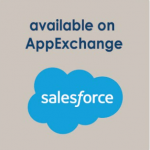Why is HubSpot and Salesforce Integration Interesting?
Salesforce is the leading cloud-based sales platform renowned for its extensive suite of applications and robust CRM capabilities. Leveraging the Salesforce CRM platform and its automation tools, businesses can elevate sales and productivity, enhance internal communication, and gain real-time visibility into marketing efforts and outcomes. HubSpot is a comprehensive marketing platform, offering a wide range of functionalities including SEO, lead management, content marketing, landing page analytics, and marketing automation. Embracing HubSpot empowers organizations to optimize their inbound marketing campaigns, driving greater efficiency and effectiveness across the board.
Renowned for their versatility and comprehensive functionality, these platforms cater to diverse business needs, seamlessly bridging the gap between marketing and sales. The true power lies in HubSpot and Salesforce integration, as they complement each other harmoniously, unlocking new levels of productivity and success. Embrace this dynamic duo and take your organization forward in the dynamic world of marketing and sales.
Effortless HubSpot & Salesforce Integration
Seamless Data Sync to Boost Sales and Marketing Alignment
Streamline your sales funnel and marketing efforts with our expert HubSpot Salesforce Integration Services. Our user-friendly setup process, complete with a step-by-step guide, guarantees a smooth integration experience. We also provide dedicated support to assist you throughout the integration process, ensuring optimal performance.
Unlock Powerful Sales Intelligence
Take complete control of your data with our HubSpot Salesforce Integration. You can choose which data to sync between HubSpot and Salesforce, including new and existing leads. Gain valuable insights into lead behavior by tracking metrics like form submissions, email engagement, and website activity. By leveraging lead scoring data from HubSpot within Salesforce, your sales team can prioritize outreach efforts based on qualified leads, maximizing their efficiency.
Target High-Value Leads & Boost Sales Productivity
Close more deals and streamline lead nurturing with our robust HubSpot Salesforce Integration. By incorporating lead scoring data from HubSpot into Salesforce, your sales team can effectively target high-value prospects, saving them valuable time.
Achieve Perfect Marketing & Sales Alignment
Unify your marketing and sales teams with seamless contact data from Salesforce. This integration empowers you to personalize email marketing campaigns, segment your audience strategically, and send targeted emails on behalf of designated sales reps – all without the hassle of manual data entry. Additionally, when a lead converts to a customer in Salesforce, revenue data is automatically sent to HubSpot, enabling you to directly measure the ROI of your marketing efforts.
Why Rolustech?
All point Salesforce Services
We have proven expertise in rendering end-to-end Salesforce services including Customization, Consulting, Development, Implementation, Integration, and Support.
Salesforce Partners
As a consulting partner we provide an extensive suite of services to cater to your diverse needs. We have solidified our expertise by successfully delivering more than 40 custom products
with over 15 years in the industry.
Expert Team
Our dedicated team consists of 20+ certified professionals who possess extensive domain expertise, ensuring that we deliver top-notch services tailored to your specific needs.
Industry Expertise
With our extensive expertise, we specialize in driving digital transformation through our innovative development solutions across various industries.









